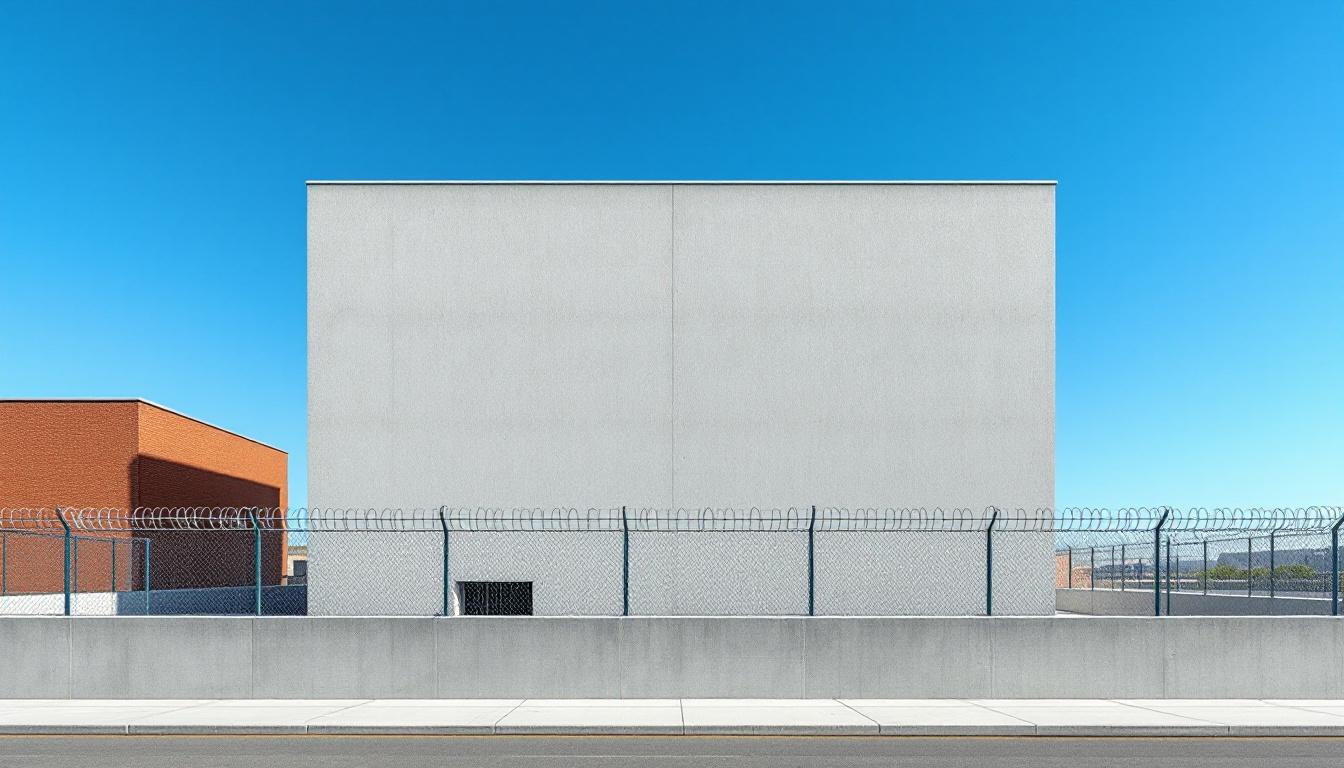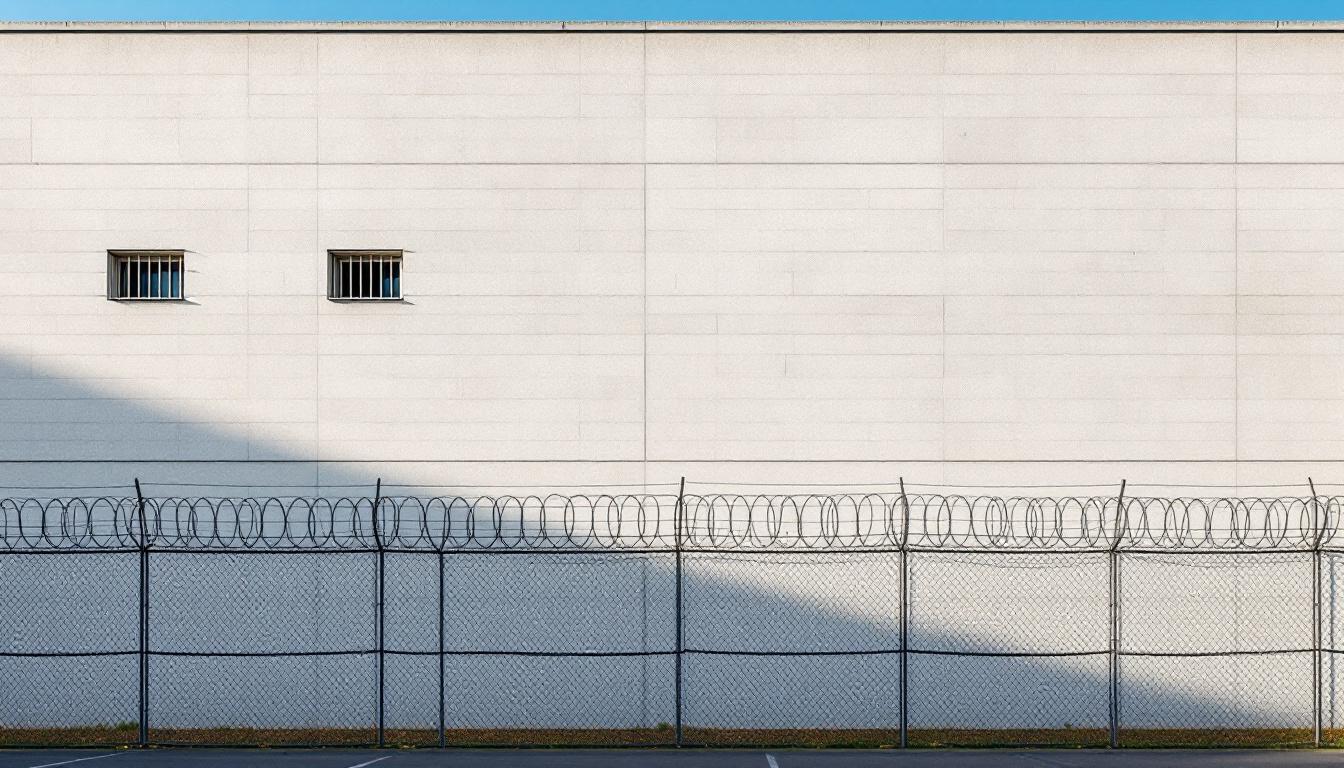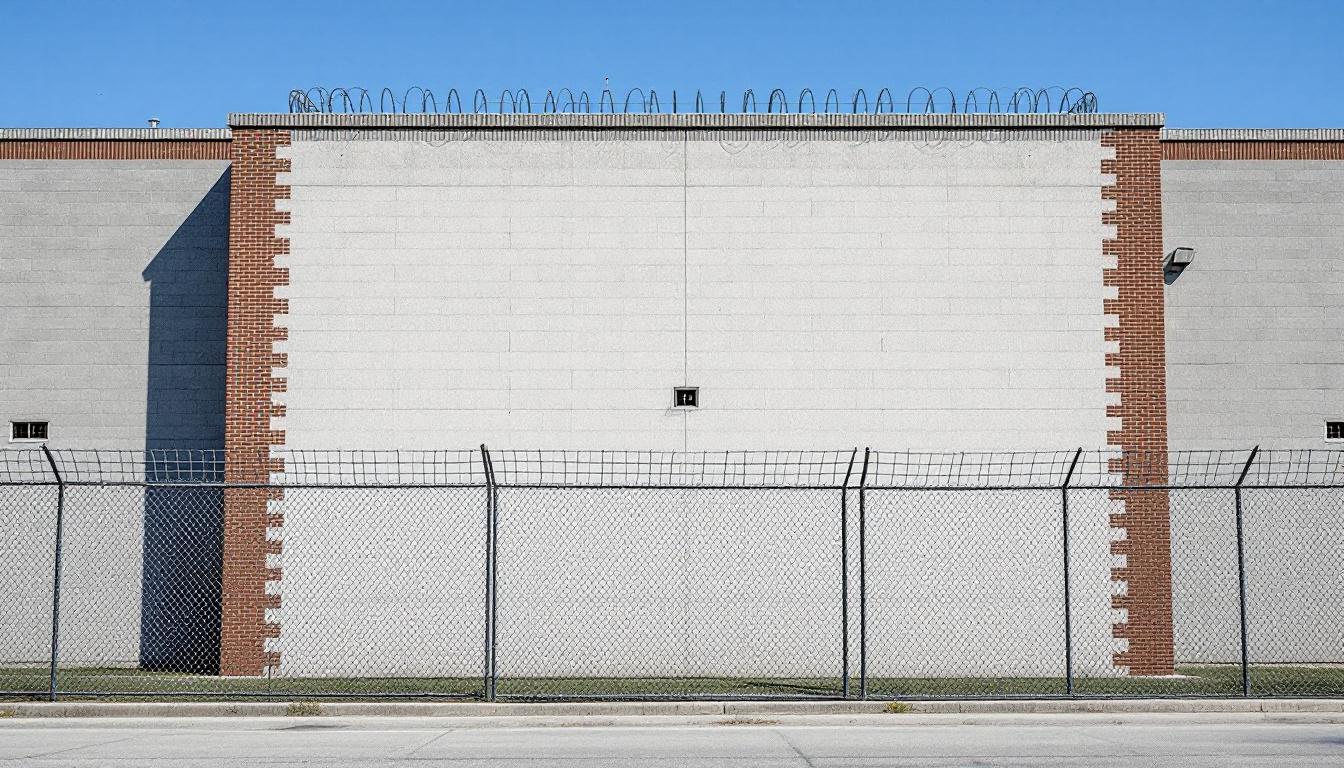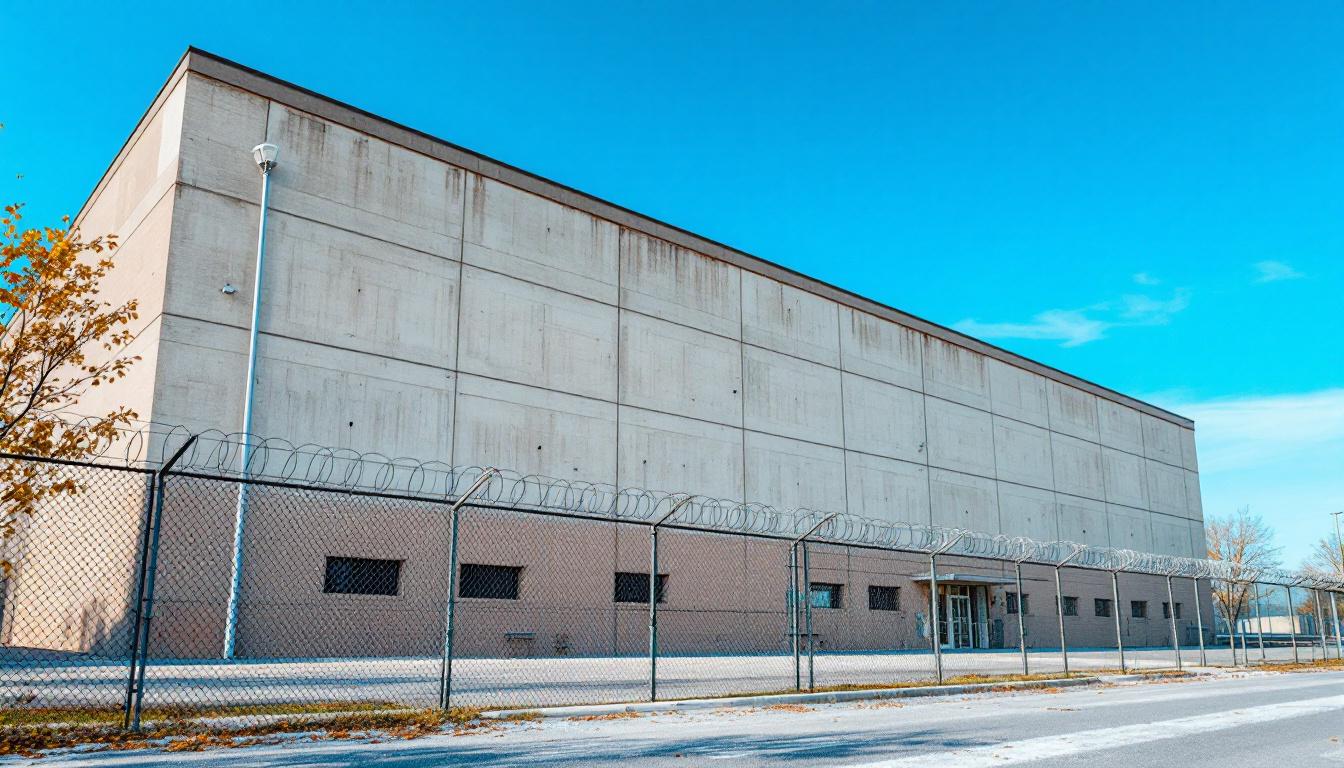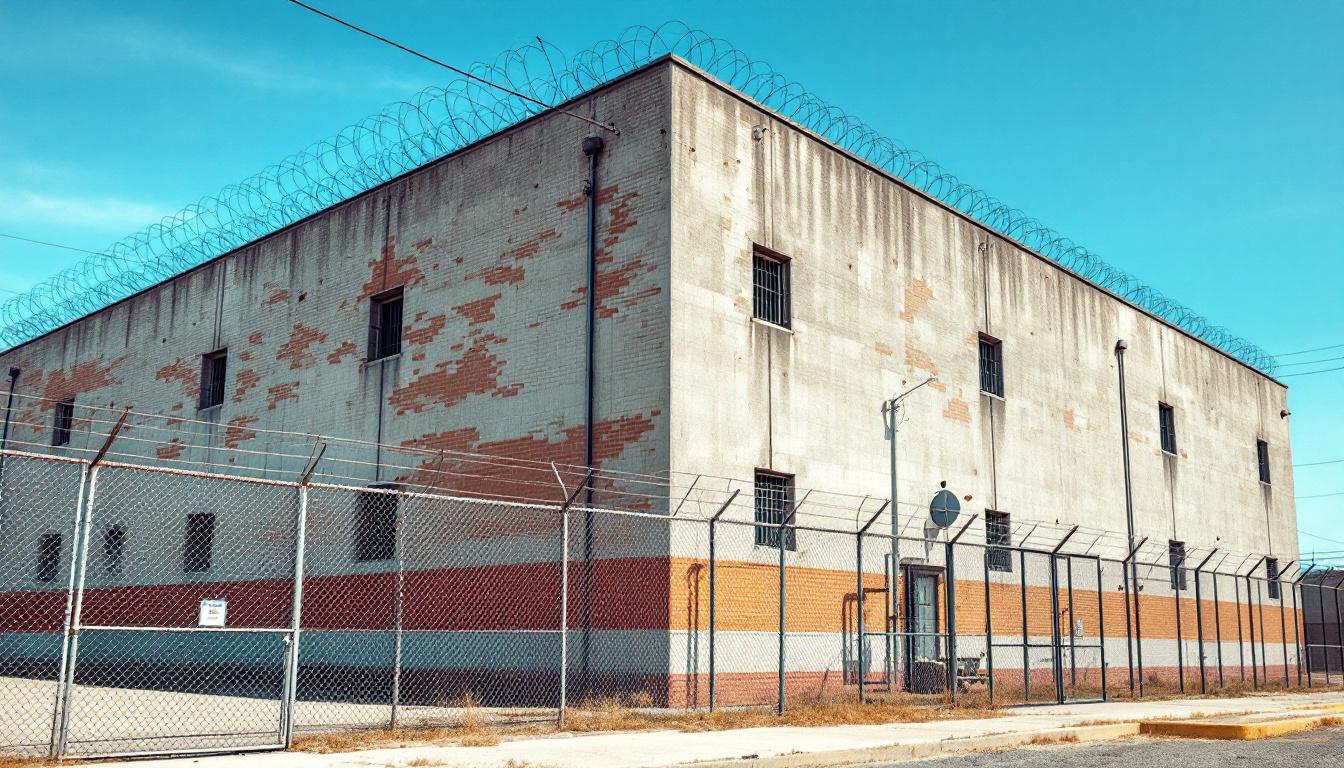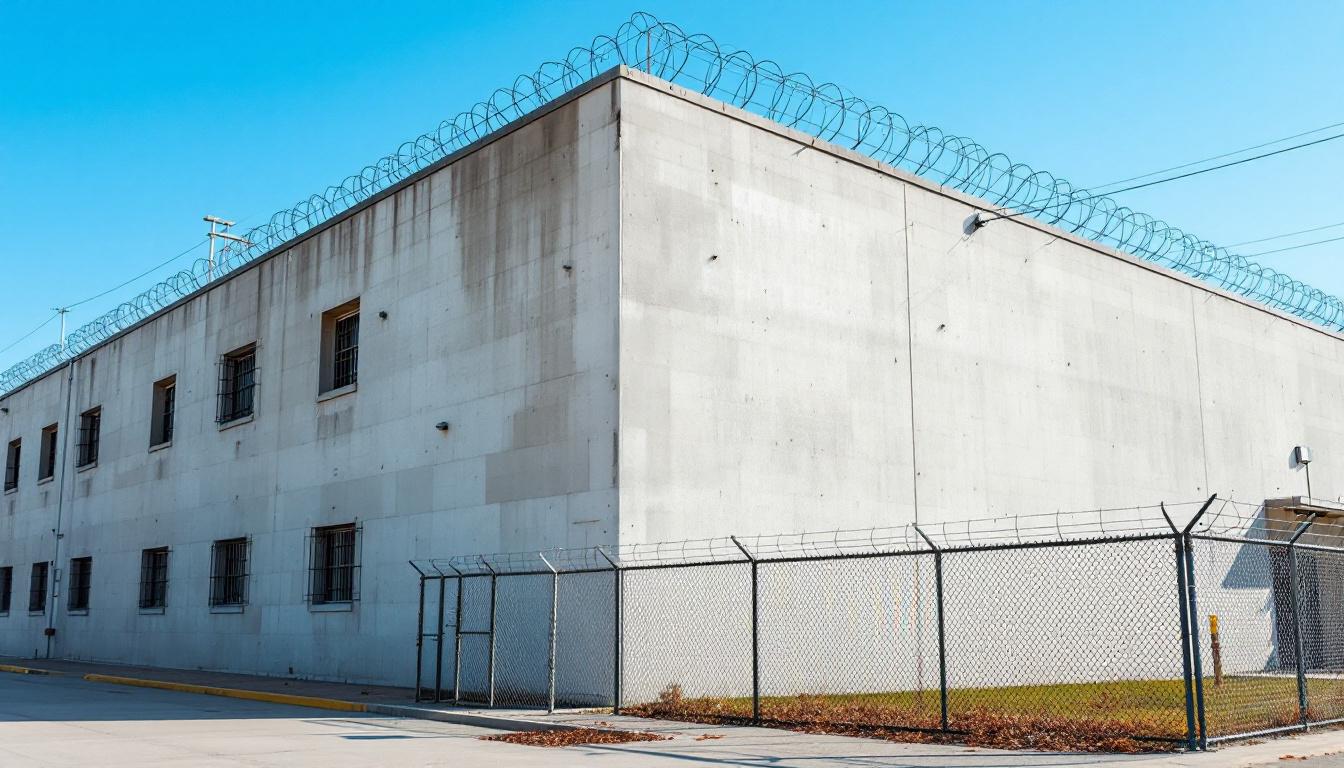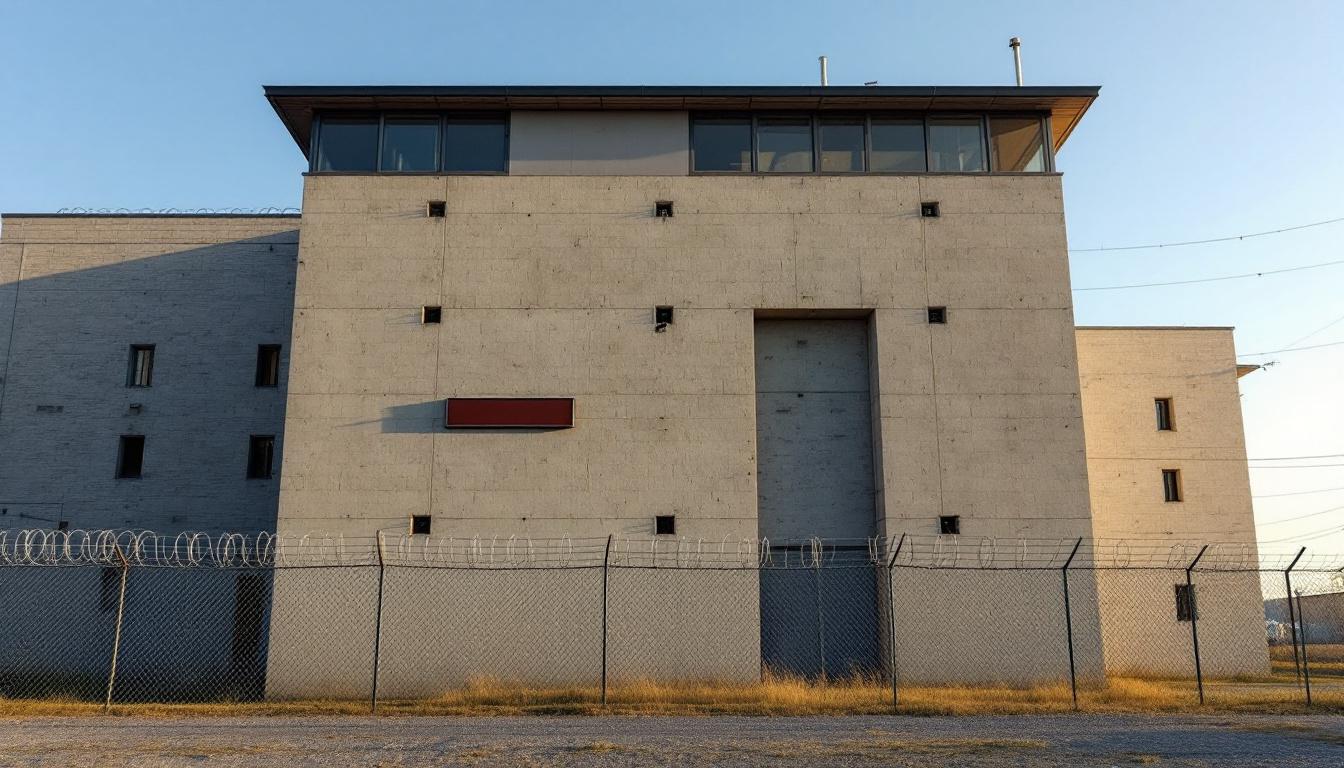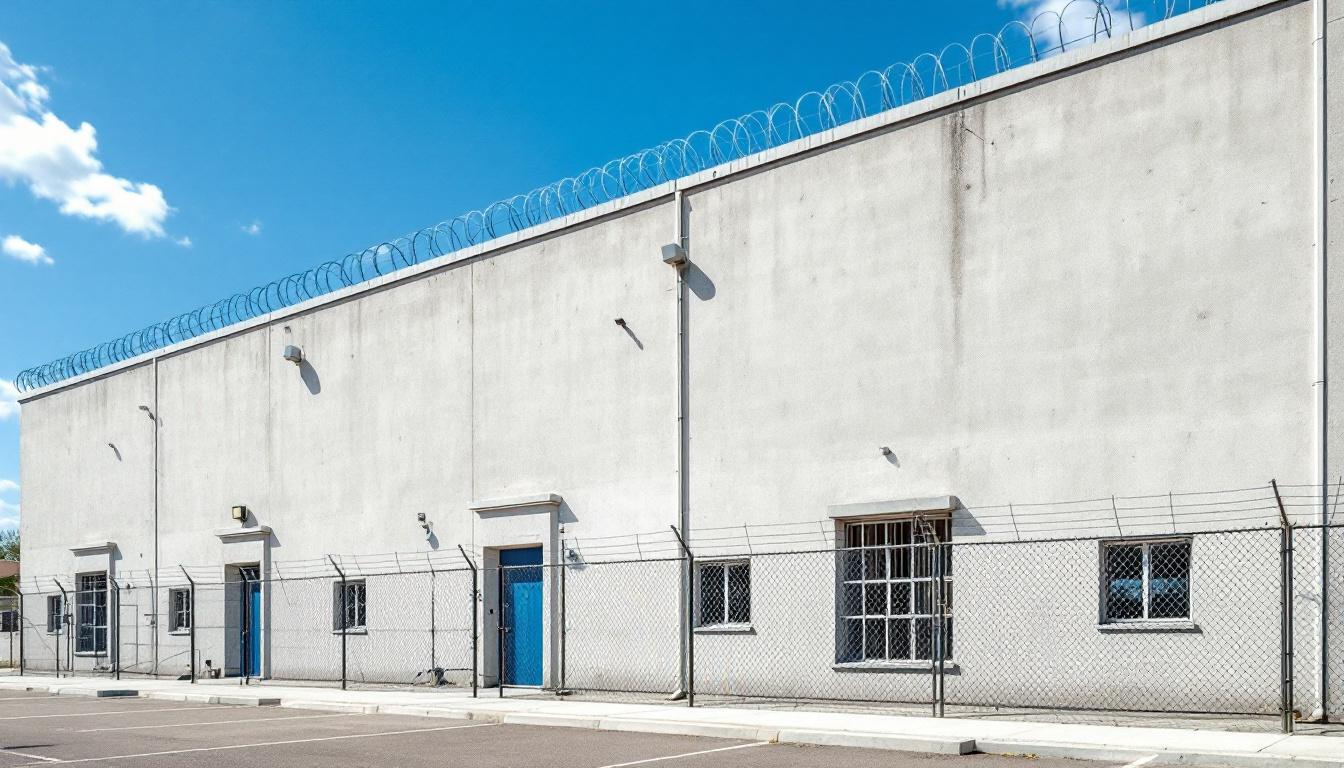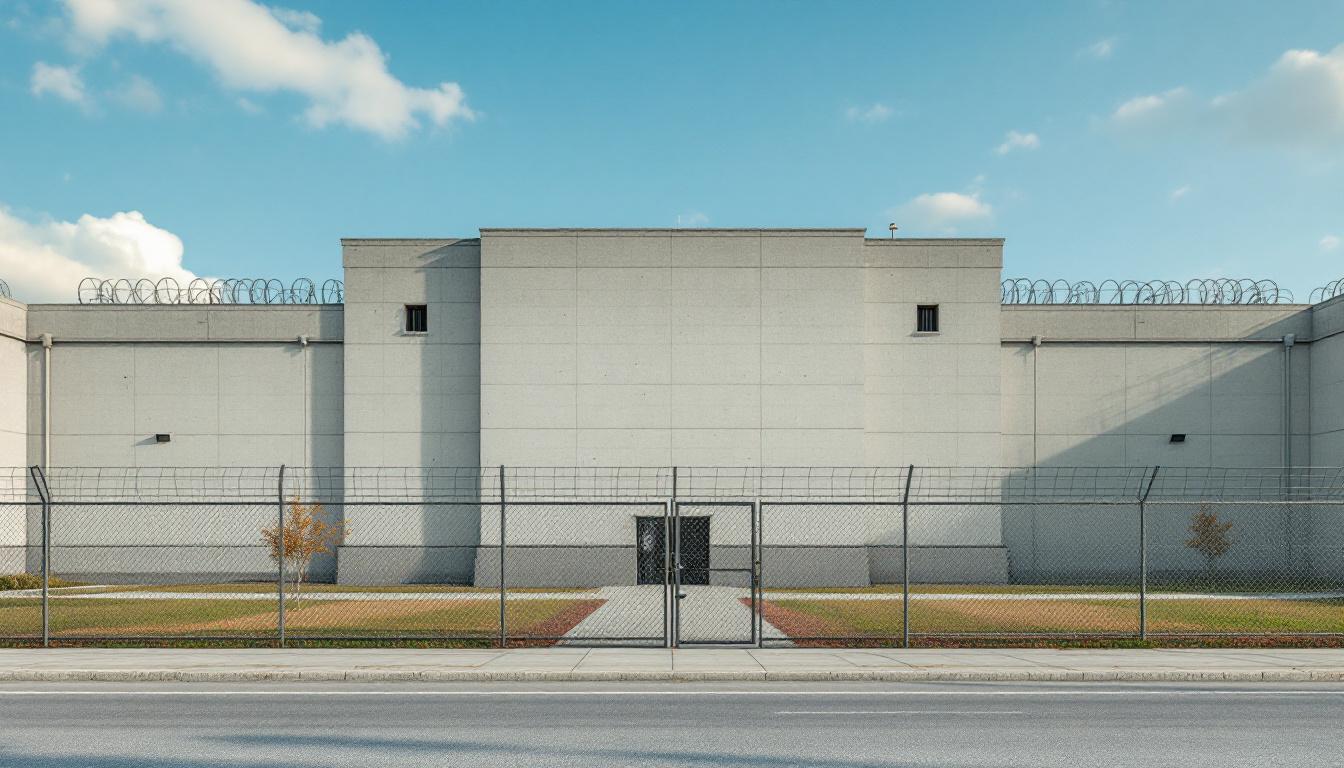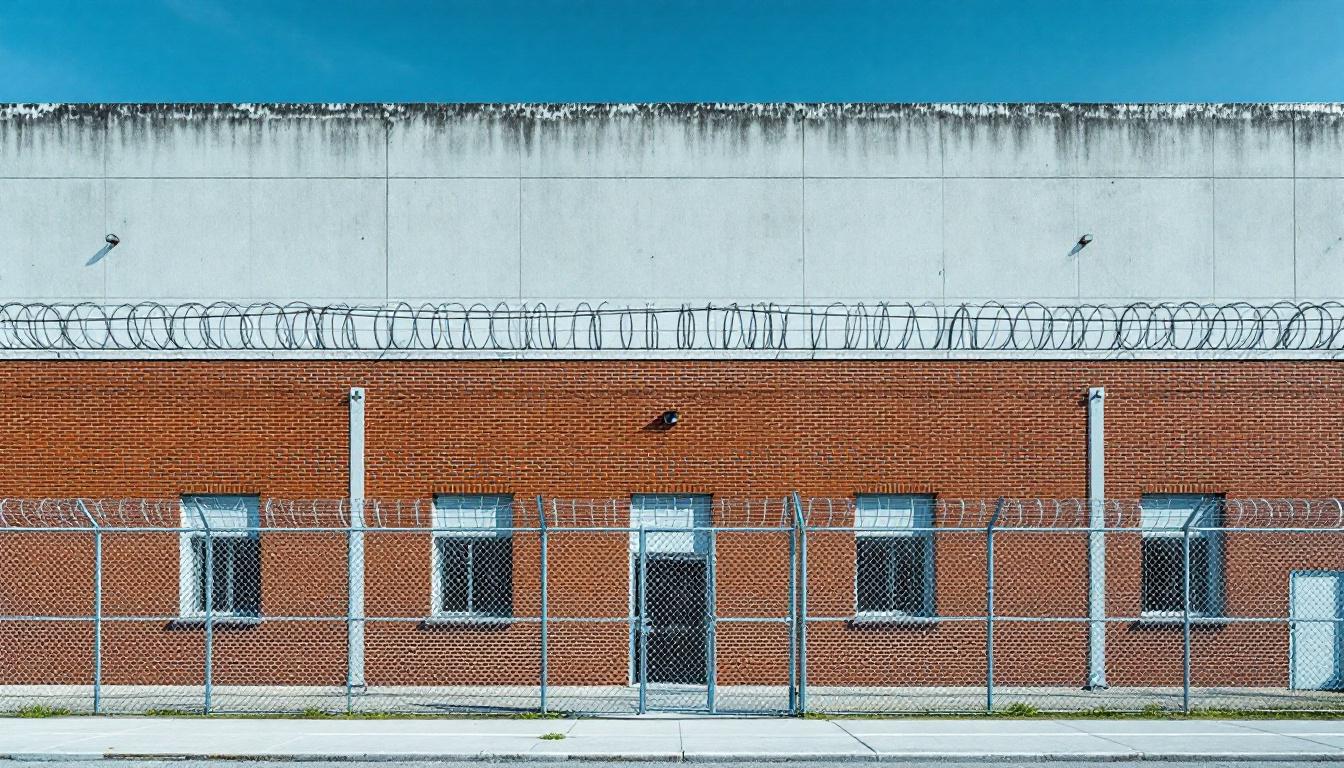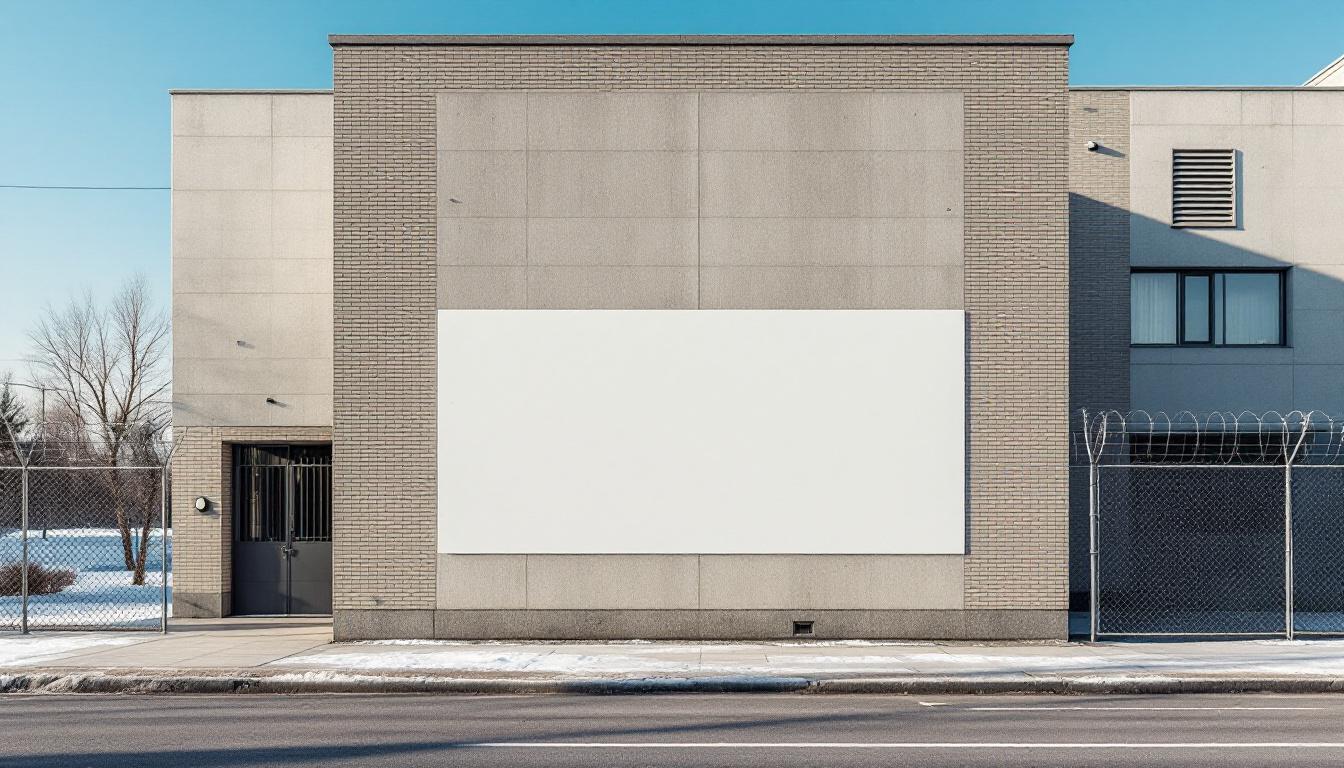
Quick Navigation
How to contact an inmate at Frederick County Adult Detention
This comprehensive guide will walk you through how to connect with an inmate at Frederick County Adult Detention. Follow the steps below to find an inmate and send letters and photos:
- Search for the inmate using our search tool below
- Create your account or log in to Penmate
- Write your message (up to 6,000 characters)
- Send instantly - inmates receive printed copies daily
Find an Inmate
Search for an inmate to start communicating today
Tip: You can search by first name, last name, or inmate ID number
To contact a person at Frederick County Adult Detention start by searching for the person on the official facility website. Perform a search by following these steps:
- Step 1: Enter their first name and last name into the search form and click "Search"
- Step 2: Locate their inmate record
- Step 3: Write down their Inmate ID and any housing information provided
Important! Be sure to enter the person's full name. Nicknames should not be used.
How to Send Messages to Inmates

You can use your phone or computer to send emails, letters, and photos to an inmate. Messages are sent electronically to inmate tablets or kiosks at the facility. If you would like to send a message, start by searching for an inmate at Frederick County Adult Detention.
Sending Photos and Postcards

A great way to send love and support to a loved one at Frederick County Adult Detention is to send photos and postcards. It only takes a few minutes to send photos from your phone and it makes a huge difference. You can also mail postcards with words of support and inspiration, or design your own postcard for special moments like birthdays and holidays.
Important! Be sure not to send any explicit photos or they may not be approved by the facility. You can also use a photo printing app like Penmate to make sure your photos are printed at the correct size (4x6 or 3x5) and are mailed according to the rules and regulations of Frederick County Adult Detention.
Frequently asked questions about Frederick County Adult Detention
-
How long does it take to deliver a message?
If you're sending an email message your letter is usually delivered within 24-48 hours. For messages sent via mail you should expect delivery within 3-7 days. All messages will need be approved by Frederick County Adult Detention.
-
How much does it cost to send a message to Frederick County Adult Detention?
You can send a message free using your phone or mail a message via USPS for the price of a $0.60 stamp and envelope. You can also purchase credits or e-stamps from services starting at $1.99.
-
What services can I use to contact an inmate at Frederick County Adult Detention?
Penmate
You can use Penmate to send letters and photos to an inmate from your phone. It's an easy way to stay in touch during your loved one's incarceration. Use the inmate locator to find an inmate's location and contact information, then you can send messages within a few minutes.
Securus messaging
Securus may be another option for communicating with an inmate at Frederick County Adult Detention. You can create a friends and family account and purchase credits to send messages. All messages will be reviewed and must be approved by the facility.
JPay
Some county jails and state prisons may support sending messages with JPay. You must register an account with the system, find your loved one, and purchase stamps to send messages. For some locations you can also attach photos.
Smart Jail Mail
You may also check if Smart Jail Mail is available at Frederick County Adult Detention. Smart Jail Mail is operated by Smart Communications and has contracted with some state and county jails. After purchasing credits, your messages and photos are sent to the facility, printed out, and then handed out to your loved one.
-
What is the mailing address of Frederick County Adult Detention?
Mailing address:
Frederick County Adult Detention
7300 Marcies Choice Ln
Frederick, MD 21704
Phone: (301) 600-2550 -
What are the visiting hours at Frederick County Adult Detention?
Visiting hours at Frederick County Adult Detention vary by housing unit and security level. Generally, visits are scheduled on weekends and holidays, with some facilities offering weekday visits. Contact the facility directly at (301) 600-2550 or check their website for the current visiting schedule. Visits typically last 30-60 minutes and must be scheduled in advance.
-
What items are prohibited when sending mail to Frederick County Adult Detention?
Prohibited items typically include: cash, personal checks, stamps, stickers, glitter, glue, tape, staples, paperclips, polaroid photos, musical or blank greeting cards, hardcover books, magazines with staples, and any items containing metal or electronics. Only send letters on plain white paper with blue or black ink. Photos must be printed on regular photo paper (no Polaroids). Always check with Frederick County Adult Detention for their specific mail policies.
-
How do I send money to an inmate at Frederick County Adult Detention?
You can send money to an inmate at Frederick County Adult Detention through several methods: 1) Online using JPay, Access Corrections, or the facility's approved vendor, 2) Money orders mailed directly to the facility with the inmate's name and ID number, 3) Kiosks located in the facility lobby, or 4) Over the phone using a credit or debit card. Fees vary by method, typically ranging from $2.95 to $11.95 per transaction.
-
Can I schedule a video visit with an inmate at Frederick County Adult Detention?
Many facilities now offer video visitation as an alternative to in-person visits. At Frederick County Adult Detention, video visits may be available through services like Penmate, Securus Video Connect, GTL, or ICSolutions. Video visits typically cost $10-20 for 20-30 minutes and must be scheduled in advance. You'll need a computer or smartphone with a camera and reliable internet connection. Contact the facility for their specific video visitation policies and approved vendors.
-
What identification do I need to visit an inmate at Frederick County Adult Detention?
All visitors must present valid government-issued photo identification such as a driver's license, state ID, passport, or military ID. Minors must be accompanied by a parent or legal guardian who can provide the minor's birth certificate. Some facilities require visitors to be on the inmate's approved visitation list, which may require a background check. Contact Frederick County Adult Detention for specific ID requirements and visitor approval procedures.
-
How can I find out an inmate's release date?
To find an inmate's release date at Frederick County Adult Detention, you can: 1) Use the online inmate search tool if available, 2) Call the facility's records department, 3) Contact the inmate's case manager or counselor, or 4) Have the inmate provide this information during a call or visit. For privacy reasons, some facilities only release this information to immediate family members.
Facility Overview
Contact Information
Frederick County Adult Detention7300 Marcies Choice Ln
Frederick, MD 21704
Phone: (301) 600-2550
Official Website
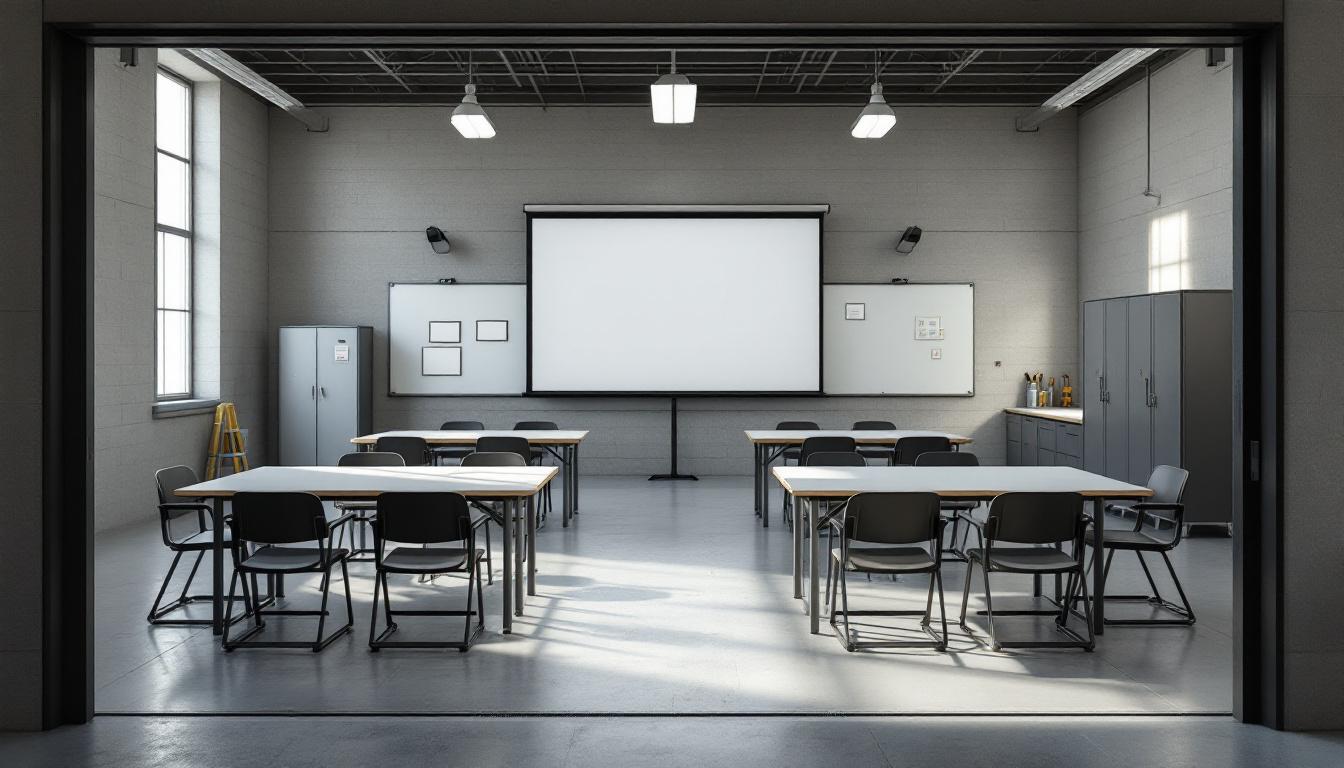
About Frederick County Adult Detention
Community partnerships form the cornerstone of successful reentry preparation at Frederick County Detention Center, MD, where comprehensive programming connects incarcerated individuals with resources that extend far beyond the facility's walls. This MD correctional facility serves Frederick and surrounding areas by maintaining active collaborations with local organizations, educational institutions, and service providers to create meaningful pathways toward rehabilitation and community reintegration.
The detention center typically offers a structured environment where inmates services encompass educational opportunities, vocational training programs, and substance abuse counseling designed to address the underlying factors that may contribute to criminal behavior. Mental health support, life skills development, and pre-release planning generally form essential components of the facility's approach to preparing individuals for successful community reentry. These programs often emphasize practical skill-building, from basic literacy and GED preparation to job readiness training that aligns with Frederick's local employment landscape.
Located in Maryland's historic Frederick area, the facility operates within the state's broader correctional framework while maintaining focus on evidence-based practices that support long-term behavioral change. The detention center's programming philosophy generally emphasizes accountability alongside skill development, recognizing that effective rehabilitation requires both personal responsibility and access to appropriate resources. Through coordinated discharge planning and connections to community-based support services, the facility works to ensure that individuals leaving custody have established links to housing assistance, employment opportunities, and ongoing treatment services that may help prevent recidivism and promote successful community integration.
Programs & Services
Personal growth and skill development form the foundation of rehabilitation efforts at Frederick County Detention Center. The facility typically emphasizes building practical abilities and addressing underlying challenges that may contribute to criminal behavior. Through structured programming, inmates often have opportunities to develop new competencies while working toward successful community reintegration.
Educational services may provide inmates with pathways to complete their academic goals and expand their knowledge base. GED preparation programs typically help those who have not finished high school work toward earning their equivalency diploma. Education programs often include basic literacy and numeracy instruction for inmates who need foundational skills. Civic education services may offer learning opportunities about legal rights, government processes, and community responsibilities. In addition to this, vocational training services often focus on teaching marketable job skills that can lead to employment after release. Carpentry programs typically provide hands-on experience with construction techniques and tool usage.
Support services often address the personal and emotional challenges that inmates may face during incarceration and after release. Therapeutic services typically include counseling and mental health support to help individuals work through behavioral patterns and develop coping strategies. Job placement assistance may provide guidance on resume writing, interview skills, and connecting with potential employers in the community. These support programs often emphasize building the personal stability and professional connections that can help reduce the likelihood of reoffending.
Daily Life & Visitation
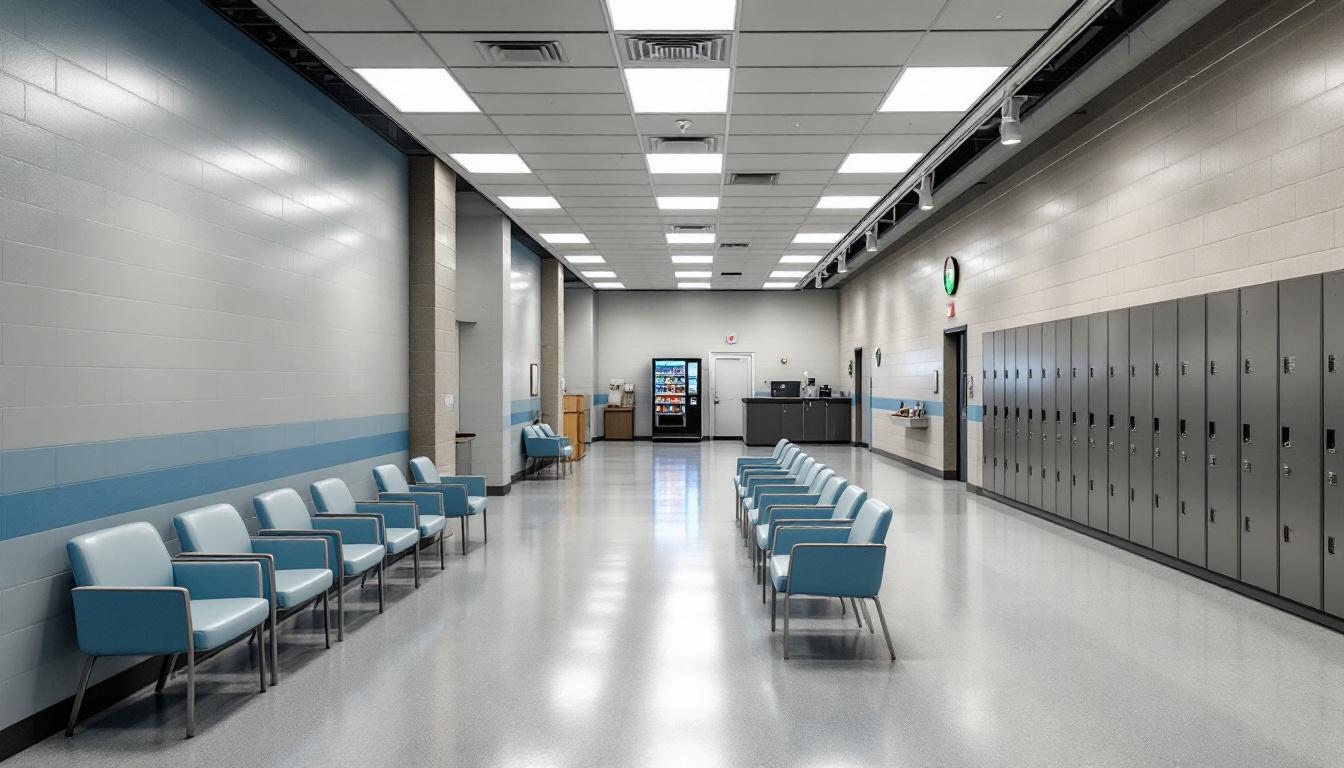
Behind the secure walls of Frederick County Detention Center, inmates navigate a highly structured environment where concrete walls and controlled lighting define their daily surroundings. Today's routine begins with early morning counts and consistently follows a predetermined schedule that governs movement throughout the facility. Inmates typically wake to announcements over the intercom system and prepare for the day within their assigned housing units. Meals generally occur at designated times in common dining areas, where inmates receive pre-portioned trays and eat under supervision before returning to their units.
Living accommodations at the facility typically consist of shared cells or dormitory-style housing units, where inmates store their limited personal belongings in designated areas. Each housing unit usually includes common areas with tables and seating, along with access to televisions and basic recreational materials. Despite this structured environment, inmates often adapt by establishing routines around available activities such as reading, letter writing, or participating in unit-based programs. Personal hygiene items and additional supplies may be purchased through the commissary system, providing some degree of personal choice within the controlled setting.
In addition to this basic structure, the facility generally provides recreational opportunities that may include access to outdoor yards, indoor exercise areas, and organized activities. Work assignments often provide inmates with purposeful daily activities, which might include kitchen duties, maintenance tasks, or facility cleaning responsibilities. Structured programming schedules typically offer educational classes, substance abuse counseling, or other therapeutic services designed to support rehabilitation goals. Family connections remain important through regular visitation periods and telephone privileges, allowing inmates to maintain contact with their support systems while serving their time at the detention center.
Ready to Connect?
Start communicating with your loved one today
Search for an Inmate
